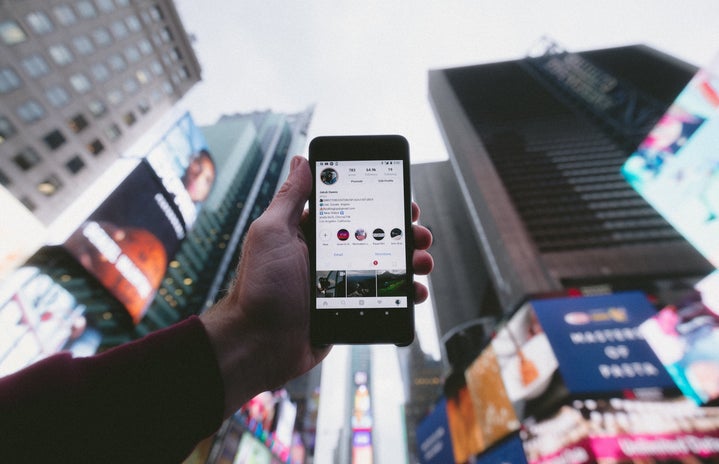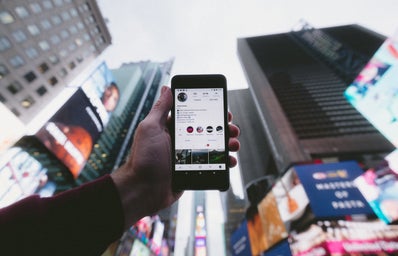Who are we? We are Generation Y, also known as the “millennials.” Generation Y grew up with 90’s boy bands, Saturday morning cartoons, and funky toys. We are the generation that grew up with technology. Remember AIM? MSN? Now, look at us with Snapchat, Facebook, Twitter, and countless other social media platforms. Many of us—and generations to come—will be living with so much new technology and obsessions with new iPhones and Androids. For now, however, being socially accepted on the internet seems to be the most important. We seem to care about how many friends we have on Facebook and how many followers we have on Instagram and Twitter.
In the early years of social media, we started off with the likes of Myspace, Xanga, Friendster, and AIM. In 2004, the development of Myspace kicked off the social media engagement. Myspace evolved into one of the biggest social media platforms, with million of users using their interface everyday. It allowed users to be anonymous, which resulted in many anonymous friendships. Looking back, many users used fake profiles and names to fool around. However, not many of us were obsessed with the concept of having hundreds and thousands of friends on Myspace.
With Facebook coming into the picture, users were prompted to use their real identities. It was a new phenomenon, where we put our authentic selves on to a social media platform. Then the introduction of Instagram, Twitter, and other social media sites prompted users to want more “likes,” “favourites,” and followers.
The projection of our own lives on a digital platform caused us to want to make it seem our lives were more interesting than they really were. Due to these platforms consisting features such as “likes,” many users found it super important to have their life events be “liked.”
A study conducted by Grenny and Maxfield reveals that we are losing connections with real life in order to earn social media likes and praises. According to this study, 58% of respondents to a survey stated that posting the perfect picture on social media had disconnected them with real life experiences. From a pool of 1,623 people, the survey found that:
- 3 out of 4 people admit to being rude or disconnected from others because they are focused on their phone.
- 91% had seen a tourist miss enjoyment of the moment because they were trying to post it on social media.
- 78% had seen a parent undermine their own experience in a child’s life in an effort to capture the perfect post.
- 14% risked their own safety to try to get a good post.
Australian Instagram star, Essena O’Neill, spoke out about the ugly truth behind being “liked.” The 18-year-old had a following of more than 200,000 users on the social media platform, but in November, she spoke out about how unhappy she was due to her obsession with posting the right pictures, gaining social approval, and being validated on the basis of how many likes she received. O’Neill ended up deleting the majority of her Instagram posts and changing the caption of her photos to reveal the truth behind them. Nonetheless, so many teens aspire to be “Instagram famous” or to achieve some fame on social media platforms and this prompts me to wonder, Are we always going to use “likes” and followers to validate ourselves?
Even if we try to sway away from the mentality of being validated with “likes,” the society we live in is still obsessed with it. There are countless websites and applications on our devices that allow us to “buy followers.” For example, Slate’s frequent contributor, Seth Stevenson, got curious and looked into Twitter and buying followers. With $202, Stevenson purchased 27,000 followers. It is so easy to buy followers to amp up our popularity in order to give ourselves a sense of validation.
According to an article from the New York Times, even politicians, celebrities, and bloggers are known to have purchased followers. With a quick Google search of “buy followers” and a few clicks, you can be bragging about how many followers you have.
From personal experience, it does feel refreshing to have people “like” your life stories, pictures, and moments on social media. As someone who privatizes my photos and profile pictures on Facebook, I decided to publically share my profile picture. By doing so, I wanted to see how many likes and comments I could get. Admittedly, I did feel somewhat nervous to see how many likes and comments I could accumulate from my selfie. From this experience, I fully understood why comments and “likes” make us feel some form of validation It is because all the attention we receive gives us some sort of confidence boost, knowing that people care about what you do and that they enjoy seeing what you are sharing. This is perhaps why so many social media users start to obsess with posting the right things.
In conclusion, social media, “likes,” and followers will perhaps stick to our generation for a very long time. Why? Because it has become second nature for us to capture every single moment and to post it on social media. Hopefully, though, we can move passed this frenzy and start to enjoy the real moments in life, rather than documenting them.

